IVP Jesus Studies Collection (14 vols.)
Digital Logos Edition
Overview
The IVP Jesus Studies Collection presents fourteen contemporary volumes on Jesus’ life and ministry, as well as much-debated topics relating to the interpretation of his deity, significance of his resurrection, and the historical impact he made. This collection provides readers with the best in scholarship from well-known names in the field of New Testament studies including Craig A Evans, Kenneth E. Bailey, Ben Witherington III, Craig L. Blomberg, Robert H. Stein, and more! Bringing together their expertise, the IVP Jesus Studies Collection offers pastors, students, and laypeople a deeper look at numerous topics, such as:
- The preexistence of Christ
- Significance and interpretation of Jesus’ parables
- Claims made about Jesus and the misguided assumptions behind them
- Rise of Christianity and the spiritual and intellectual impact Jesus had on his followers
- Life, miracles, and ministry of Christ
- And much, much more!
The more than 5,000 pages that make up this collection approach Jesus studies with exegetical, theological, and philosophical viewpoints, resulting in a comprehensive analysis of Christology.
With Logos Bible Software, the IVP Jesus Studies Collection (15 vols.) is easily searchable. Scripture passages appear on mouse-over, and all cross-references are linked to the other resources in your digital library, making this collection more powerful and easier to access than ever before for scholarly work or personal Bible study. With the advanced search features of Logos Bible Software, you can perform powerful searches by topic or Scripture reference, such as finding every mention of “resurrection” or “Luke 15.”

- Thorough study of the life and ministry of Jesus
- Solid scholarship debunking current Jesus myths
- Authoritative work of some of today's leading biblical and theological scholars
- Title: IVP Jesus Studies Collection
- Publisher: IVP
- Volumes: 14
- Pages: 4,813
- Fabricating Jesus
- He Came Down from Heaven
- The Cross and the Prodigal: Luke 15 through the Eyes of Middle Eastern Peasants
- The Gospel Code: Novel Claims about Jesus, Mary Magdalene, and Da Vinci
- The Historical Jesus: Five Views
- Jacob and the Prodigal: How Jesus Retold Israel's Story
- Jesus and the Restoration of Israel: A Critical Assessment of N. T. Wright's Jesus and the Victory of God
- Jesus and the Rise of Early Christianity: A History of New Testament Times
- Jesus the Messiah: A Survey of the Life of Christ
- Jesus the Miracle Worker: A Historical and Theological Study
- Jesus through Middle Eastern Eyes: Cultural Studies in the Gospels
- The Resurrection of Jesus: A New Historiographical Approach
- Surprised by Jesus: His Agenda for Changing Everything in A.D. 30 and Today
- The Jesus Quest
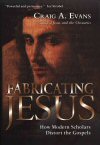
Modern historical study of the Gospels seems to give us a new portrait of Jesus every spring—just in time for Easter. The more unusual the portrait, the more it departs from the traditional view of Jesus, the more attention it gets in the popular media.
Why are scholars so prone to fabricate a new Jesus? Why is the public so eager to accept such claims without question? What methods and assumptions predispose scholars to distort the record? Is there a more sober approach to finding the real Jesus?
Commenting on such recent releases as Bart Ehrman's Misquoting Jesus, James Tabor's The Jesus Dynasty, Michael Baigent's The Jesus Papers and The Gospel of Judas, for which he served as an advisory board member to the National Geographic Society, Craig Evans offers a sane approach to examining the sources for understanding the historical Jesus.
The quest of the historical Jesus has been seriously misled by much poor scholarship and distorted almost beyond recognition by recent pseudo-scholarship. But now Craig Evans out-skeptics the historical skeptics, demonstrating from his own intimate familiarity with the biblical texts and his mastery of ancient sources how unfounded are many of the claims made and how ridiculously bizarre are the hypotheses thought to give some support to The Da Vinci Code and its like. The mature judgment of such an accomplished and front-rank scholar cannot be ignored or lightly gainsaid—a welcome draft from a clear spring after all the muddied waters of recent years.
—James D. G. Dunn, Lightfoot Professor of Divinity Emeritus, University of Durham
Fabricating Jesus exposes the misinformed nonsense that has confused the reading public over the past few years. Craig Evans is a well-read and thoughtful scholar who knows all the ancient texts. In this well-written book, he exposes the misguided assumptions and dubious sources that lie behind the wild theories that have plagued the public. He has also presented Jesus and the Gospels in their proper historical context. With enthusiasm, I recommend this book for scholars and all interested in Jesus and Christian origins.
—James H. Charlesworth, George L. Collord Professor of New Testament Language and Literature, Princeton Theological Seminary
Few scholars are as well-positioned, well-trained and well-informed as Craig Evans to critique the recent spate of books that have hit the stands, touting a new Jesus for a new day. In a scholarly world where almost anything can pass for knowledge of the historical Jesus or earliest Christianity no matter how far-fetched, it is comforting to have someone like Craig Evans as a sure guide through the maze of books on Jesus and supposedly lost Christianities. Fabricating Jesus is simply the best and most well informed popular-level book ever written on the Gnostic and apocryphal Gospels, as well as on a host of other early traditions that in some way touch on the story of Jesus. Along the way, Evans also provides us with a sane and sober reconstruction of Jesus and his aims and the history of earliest Christianity. I hope this book will gain the wide audience it so richly deserves.
—Ben Witherington III, Professor of New Testament, Asbury Theological Seminary
This powerful and persuasive book is a much-needed antidote to the outrageous distortions about Jesus and the Gospels that have been popularized in recent years. It's authoritative while still being accessible, and well-argued without being mean-spirited. I strongly recommend this outstanding resource to both Christians and spiritual seekers.
—Lee Strobel, author of The Case for Christ
Craig Evans is well-known in academic circles for his expertise in Judaism and the history of early Christianity. In this new book he brings a refreshing mixture of scholarly erudition and critical common sense to an evaluation of the various documents that have been thought to undermine the credibility of the New Testament and demonstrates convincingly that they cannot bear the burden of proof that has been placed upon them. . . . At a time when much baseless fiction is being developed by novelists on the basis of such dubious sources, it is good to have this exposé of just how fictitious such writings are.
—I. Howard Marshall, Honorary Research Professor of New Testament, University of Aberdeen
Many recent studies of Jesus are arguing that evidence requires a Jesus redo. Some works are written by well-known academics, while others are written by less well-known authors. Enter Craig Evans, who has given his life to the historical study of Jesus. Mincing no words, he calls most of these efforts what they are—fabrication. However, his tone is irenic, the style is accessible, his argumentation is sound, and his scope is comprehensive. This book is a necessary exposé of many recent works, taking us from the hype to the historical Jesus. Eminently qualified, Evans has done us all a great service.
—Darrell L. Bock, Research Professor of New Testament Studies, Dallas Theological Seminary
Dr. Craig A. Evans received his PhD in New Testament from Claremont Graduate University and his DHabil from the Karoli Gaspar Reformed University in Budapest. He is the John Bisagno Distinguished Professor of Christian Origins at Houston Baptist University in Texas.
Evans taught at Trinity Western University in British Columbia for 21 years, where he directed the graduate program in biblical studies and founded the Dead Sea Scrolls Institute. He has recently served on the advisory board for the Gospel of Judas for National Geographic Society and has appeared frequently as an expert commentator on network television programs.
Evans has written and edited extensively on the historical Jesus and the Jewish background of the New Testament era. His published works include From Prophecy to Testament, Jesus and the Ossuaries, Jesus: The Final Days, and Dictionary of New Testament Background.
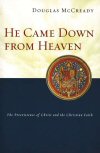
Who Was Jesus Christ? Accompanying all the new studies of the life of Jesus has been the question of Jesus' identity. Was he anything more than a human creature? A key issue in this debate is the claim of Jesus' preexistence as the divine, uncreated, Son of God before his incarnation on earth. Douglas McCready provides a thorough survey of the doctrine covering New Testament teaching, Jewish and Hellenistic background and historical development. He carefully weighs the evidence and engages the arguments for and against the Christian orthodox conviction of Christ's preexistence.
Drawing on expert scholarship McCready makes this important subject of debate accessible to students and other non-experts who want to know the evidence and arguments for this central doctrine of Christian faith. This book will be especially useful as a supplementary text for theology courses on Christology or in biblical studies courses on the New Testament witness to Jesus Christ.
Thank heavens we now have a full-length monograph on the issue of the preexistence of Christ, which is fully cognizant not only of the scholarly literature on the subject but is equally at home with the patristic interpretation of the key New Testament texts, especially the Pauline and Johannine ones. Douglas McCready is to be commended for his thoroughness in dealing with objections to this idea, and yet also his pastoral concern to show the practical and personal importance of affirming this concept as a part of an orthodox Christology. Highly recommended.
—Ben Witherington III, Professor of New Testament, Asbury Theological Seminary
The new book by Douglas McCready, He Came Down from Heaven, is an innovative study, both exegetical and theological, of the classical doctrine of Christ's preexistence (more accurately, his pretemporal existence, I think). The author is widely read and writes with clarity, though some of his conclusions will challenge some modern thinking that regards preexistence as metaphor or myth. Rightly he sees both the intrinsic theological importance of the doctrine and its ethical implications. Here is a title worth its salt. I commend it.
—Ralph P. Martin, Distinguished Scholar in Residence, Fuller Theological Seminary
A wide-ranging and well-written book.
—Books & Culture
Douglas McCready teaches religion and philosophy. He is the author of Jesus Christ for the Modern World.
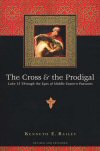
Where is the cross in the parable of the prodigal son? For centuries, Muslims have called attention to the father's forgiveness in this parable in order to question the need for a Mediator between humanity and God. In The Cross and the Prodigal, Kenneth E. Bailey—New Testament scholar and long-time missionary to the Middle East—undertakes to answer this question.
Drawing on his extensive knowledge of both the New Testament and Middle Eastern culture, Bailey presents an interpretation of this parable from a Middle Eastern perspective and, in doing so, powerfully demonstrates its essentially Christian message. Here Bailey highlights the underlying tensions between law and love, servanthood and sonship, honor and forgiveness that grant this story such timeless spiritual and theological power.
The Cross and the Prodigal is a little book that changed the minds of Gospel scholars throughout the world. . . . Over sixty years of life in the Middle East (from Egypt to Iraq) bequeathed to [Bailey] a discerning knowledge of peasant life; fluency in Arabic; the ability to work in Syriac, Coptic and Aramaic; and an intimate acquaintance with Rabbinic literature. These skills he now applies to the three parables of Luke 15 in order to unlock cultural insights that have eluded scholars for centuries. This approach deserves a name—Middle Eastern New Testament Studies--and today Bailey's legacy belongs with scholars such as Joachim Jeremias: leading parable interpreters whose work has been a watershed for the rest of us.
—Gary M. Burge, Professor of New Testament, Wheaton College and Graduate School
Dr. Kenneth Bailey's unique perspective as one who has spent the better part of his life living in the Middle East unlocks the parables and teachings of our Lord Jesus in remarkably fresh ways. In the unfolding of the prodigal son Bailey demonstrates there is no forgiveness without great cost on the part of the forgiver. This revised edition is a wonderful update and expansion of an already excellent book. I am delighted to commend it.
—The Right Reverend John W. Howe, Bishop, The Episcopal Church Diocese of Central Florida
In The Cross and the Prodigal, Kenneth Bailey uses his rare and intimate familiarity with the peasant culture of the Middle East to illuminate three beloved parables: the lost sheep, the lost coin and the lost son. Bailey rightly believes that Christian communities with close connections to the biblical world have many things to teach us about the cultural background of biblical narrative. This classic work, newly revised, provides fresh perspectives for understanding the love of God the Father, and for seeing how the compassion of the cross is present already in the teaching ministry of Jesus Christ.
—Philip Graham Ryken, President, Wheaton College
This book is for those of us who long to know what Jesus was saying to his audience then, so that we can know what the Bible is saying to us now. Ken Bailey's work is very nourishing, spiritually and theologically. And if you like to be surprised with new insights, you will love The Cross and the Prodigal!
—Rev. Marian McClure, Director, Worldwide Ministries, Presbyterian Church (U.S.A.)
It is an extremely rare event in New Testament studies when the historical expertise of the scholar is combined with the poetic imagination of the storyteller. Ken Bailey's The Cross and the Prodigal unites the professor and the playwright. In the first section of the book the author's unique familiarity with Christian literature of Near Eastern provenance and his intimate knowledge of Near Eastern village life produce a fascinating explanation of the parable of the prodigal son, which emerges not as the sentimental account of the pilgrimage of a sorry sinner, but as the portrayal of God as a Father who pays every price possible in the search of two lost sons, a portrait contrary to all expectations associated with a patriarch. The book's second section is a play in four scenes in which this understanding of the parable is placed on the stage. Thus, exegetical theology is transformed back into its original medium, the telling of a story.
—Ulrich Mauser, Otto A. Piper Professor of Biblical Theology Emeritus, Princeton Theological Seminary
Kenneth E. Bailey is an author and lecturer in Middle Eastern New Testament studies. An ordained Presbyterian minister, he also serves as Canon Theologian of the Anglican Diocese of Pittsburgh. He holds graduate degrees in Arabic language and literature, and in systematic theology; his ThD is in New Testament. Bailey spent forty years living and teaching New Testament in Egypt, Lebanon, Jerusalem and Cyprus, still holding the title of Research Professor Emeritus of Middle Eastern New Testament studies at the Ecumenical Institute (Tantur), Jerusalem.
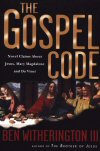
Dan Brown's international bestseller The Da Vinci Code has raised many questions in the minds of readers.
- Was Jesus really married to Mary Magdalene?
- Did he father a child with her?
- Did Constantine suppress the earliest Gospels and invent the doctrine of Christ's divinity?
- Do the Gnostic Gospels represent the true Christian faith which the early church sought to supplant?
The Da Vinci Code, in blurring the lines between fact and fiction, popularizes the speculations and contentions of numerous more serious books that are also attracting wide attention. How should we respond to claims that we now have documents that reveal secrets about Jesus, secrets long suppressed by the church and other religious institutions? Do these new documents successfully debunk traditional views about Jesus and early Christianity?
Ben Witherington III confronts these claims with the sure-footedness of a New Testament scholar, yet in the plain language that any interested reader can follow. He takes us back to the early centuries after Jesus' death and tells us what we can really know about Jesus, Mary Magdalene, the canonical Gospels, and their Gnostic rivals.
In these few pages, an eminent New Testament scholar not only explodes the follies of The Da Vinci Code but also dissects the claims of certain scholars to find in the Gnostic Gospels a historically authentic Jesus and an alternative Christianity. Timely and compelling!
—William Lane Craig, Research Professor of Philosophy, Talbot School of Theology, Biola University
Unlike so many critiques that carefully mince words, Ben Witherington explains exactly why currently popular attempts to treat the historical Jesus in a revisionist manner are so wide of the mark. Beginning with a bang by noting 'seven deadly errors' right on through the conclusion, Witherington pulls no punches while showcasing his wonderful sense of humor. Here the reader is treated to an excellent evaluation, making points that many of us wish were made far more frequently. This book is simply a delightful read.
—Gary R. Habermas, Distinguished Professor of Apologetics and Philosophy, Liberty University
Ben Witherington won't stop at refuting the historical errors of The Da Vinci Code. He will not rest until he refutes the novel's spiritual error as well. Witherington names the narcissism at the heart of the Gnostic revival and offers the New Testament's God-centered good news in its place.
—David Neff, Editor, Christianity Today
Ben Witherington III is Amos Professor for Doctoral Studies, Asbury Theological Seminary, Wilmore, KY, and is on the doctoral faculty at St. Andrews University, Scotland.
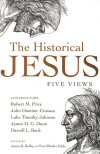
The scholarly quest for the historical Jesus has a distinguished pedigree in modern Western religious and historical scholarship, with names such as Strauss, Schweitzer and Bultmann highlighting the story. Since the early 1990s, when the Jesus quest was reawakened for a third run, numerous significant books have emerged. And the public's attention has been regularly arrested by media coverage, with the Jesus Seminar or the James ossuary headlining the marquee.
The Historical Jesus: Five Views provides a venue for readers to sit in on a virtual seminar on the historical Jesus. Beginning with a scene-setting historical introduction by the editors, prominent figures in the Jesus quest set forth their views and respond to their fellow scholars.
On the one end Robert M. Price lucidly maintains that the probability of Jesus' existence has reached the "vanishing point," and on the other Darrell Bock ably argues that while critical method yields only a "gist" of Jesus, it takes us in the direction of the Gospel portraits. In between there are numerous avenues to explore, questions to be asked and "assured results" to be weighed. And John Dominic Crossan, Luke Timothy Johnson, and James D. G. Dunn probe these issues with formidable knowledge and honed insight, filling out a further range of options.
The Historical Jesus: Five Views offers a unique entry into the Jesus quest. For both the classroom and personal study, this is a book that fascinates, probes, and engages.
Beilby and Eddy have compiled a fascinating 'virtual seminar' on the quest for the historical Jesus in their release, The Historical Jesus.
—CBA Retailers & Resources
Certain to spark sharp debate.
—Booklist
The quest to construct a historically credible presentation of Jesus is now in its third iteration, and herein five top-ranked scholars set forth their cases and critique one another, resulting in a lively give-and-take. The resultant debate is evenhanded and illuminating, setting clear, stark alternatives before the reader. Highly recommended.
—Choice
Beilby and Eddy, along with their authors, are to be commended for a job well done. I thoroughly enjoyed and highly recommend this book.
—Journal of the Evangelical Theological Society
James K. Beilby and Paul Rhodes Eddy succeed not only in identifying the major trends but also in bringing to the surface some of the assumptions in current historical Jesus research. They offer a sympathetic review of some of the major exponents of Jesus research from Reimarus up to the present day.
—Review of Biblical Literature
The Historical Jesus is a worthwhile addition to your library if you are a scholar, pastor, or layperson with particular interest in the intersection of the Jesus of history with the Christ of Christian faith.
—Calvin Theological Journal
James K. Beilby is Professor of Systematic and Philosophical Theology at Bethel University, St. Paul, Minnesota.
Paul R. Eddy is Professor of Biblical Theology and Theological Studies at Bethel University, St. Paul, Minnesota.
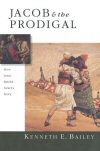
Israel, the community to which Jesus belonged, took its name from their patriarch Jacob. His story of exile and return was their story as well. In the well-known tale of the prodigal son, Jesus reshaped the story in his own way and for his own purposes.
In this work, Kenneth E. Bailey compares the Old Testament saga and the New Testament parable. He unpacks similarities freighted with theological significance and differences that often reveal Jesus' particular purposes. Drawing on a lifetime of study in both Middle Eastern culture and the Gospels, Bailey offers here a fresh view of how Jesus interpreted Israel's past, his present, and their future.
Kenneth Bailey has become the premier commentator in our generation on the cultural world behind Jesus' parables. And of all the parables, Bailey keeps returning to the prodigal son more than any other one. Here, in one very insight-filled yet readable layperson's book, is a more accessible form of much of his previous commentary on Luke 15, plus more—fascinating parallels with Genesis and the accounts of Jacob and Esau. Bailey is undoubtedly right that there is more of the full-orbed gospel of redemption in this parable than first meets the eye.
—Craig L. Blomberg, Distinguished Professor of New Testament, Denver Seminary
Bailey's knowledge of the scholarly literature is matched by his intimate understanding of ancient texts and cultures, and these together bring interpretative insights unavailable from any other writer. Here Bailey outlines how Jesus taught in his culture and day. He then focuses his energies on a brilliant and persuasive treatment of Luke 15 and shows how the 'Jacob Saga' of Genesis informed the dramatic framework of Jesus' most famous parable. Bailey is one of the 'great teachers' and through this volume we can listen to the wealth of his life of research.
—Gary M. Burge, Professor of New Testament, Wheaton College and Graduate School
Kenneth Bailey's Jacob and the Prodigal offers a fascinating study in biblical intertextuality that opens up new and exciting possibilities in the interpretation of one of Jesus' best-known parables, that of the prodigal son. The importance of Bailey's exegesis is not limited to this one parable but has significance for our understanding of the whole of Jesus' theology.
—Craig A. Evans, Payzant Professor of New Testament, Acadia Divinity College
'There cannot be anything new left to be said about the parable of the prodigal son.' Really? Not when Kenneth Bailey sets to work with his phenomenal knowledge of Scripture and Jewish writings, the Middle-Eastern scene, and early Arabic commentators on the New Testament! The result is a highly readable, exciting, and stimulating new reading of the stories in Luke 15 in tandem with the story of Jacob. Preachers on these stories will never be able to expound them again in the way that they used to do but will find treasures new in them thanks to this insightful treatment. The gospel stands out all the more clearly as a result of Bailey's interpretation.
—I. Howard Marshall, Honorary Research Professor of New Testament, University of Aberdeen
Jacob and the Prodigal is excellently written, very readable, filled with a spirit of reverence for the great subject it talks about and replete with the scholarly nuggets of the Near-Eastern expert that nobody else can provide at this time. The novelty of the New Testament as well as its continuity with the old covenant is wonderfully worked out while offering us a captivating reading of the Evangelium in Evangelio. A book with many refreshing discoveries.
—Ulrich W. Mauser, Professor Emeritus, Princeton Theological Seminary
Ken Bailey's Jacob and the Prodigal, a monumental work, will set the stage for all subsequent New Testament scholars working on the 'so-called' parable of the Prodigal Son.
—Review of Biblical Literature
Kenneth E. Bailey is an author and lecturer in Middle Eastern New Testament studies. An ordained Presbyterian minister, he also serves as Canon Theologian of the Anglican Diocese of Pittsburgh. He holds graduate degrees in Arabic language and literature, and in systematic theology; his ThD is in New Testament. Bailey spent forty years living and teaching New Testament in Egypt, Lebanon, Jerusalem and Cyprus, still holding the title of Research Professor Emeritus of Middle Eastern New Testament studies at the Ecumenical Institute (Tantur), Jerusalem.
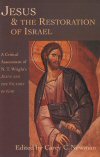
N. T. Wright's Jesus and the Victory of God is widely heralded as one of the most significant and brilliantly argued works in the current "third quest" of the historical Jesus. In this second volume, Wright uncovers a Jesus that most historians and believers never met.
Rooted and engaged in the soil of Israel's history, its first-century plight, and its prophetic hope, this portrait of Jesus has set new terms of discourse and debate. Through Wright's lens, familiar sayings and actions of Jesus that have long been taken to mean one thing now look totally different. Yet amidst all that is new in Wright's portrait, there emerges a profile of Jesus that bears striking lines of continuity with the Jesus of Christian belief and worship. This resemblance has captured the attention of confessing Christian biblical scholars and theologians.
Jesus and the Restoration of Israel is a serious attempt to offer a multifaceted and critical appreciation and assessment of Wright's world. Essays focus on Israel's continuing exile, Jesus as prophet, his Christology, apocalyptic sayings, parables, and ethics. The entire portrait of Jesus is evaluated from the standpoint of philosophy and systematic theology. Wright then responds to the essayists, and Marcus Borg, a prominent Jesus scholar and Wright's frequent dialogue partner, offers his critical appraisal of the discussion.
Carey C. Newman is an academic book editor at Westminster John Knox Press and Adjunct Professor of New Testament at Louisville Presbyterian Theological Seminary.
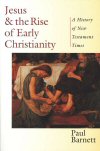
The pathway to understanding the New Testament leads through the vibrant landscape of the first-century Greco-Roman world. The New Testament is rooted in the concrete historical events of that world.
In Jesus and the Rise of Early Christianity Paul Barnett not only places the New Testament within that world of Caesars and Herods, proconsuls and Pharisees, Sadducees and revolutionaries, but argues that the mainspring and driving force of early Christian history is the historical Jesus. We cannot understand the rise of Christianity apart from this Jesus, the messiah of Israel and the spiritual and intellectual impact he had on his immediate followers and those who succeeded them.
From his intimate acquaintance with the sources, the evidence and the problems of New Testament history, Barnett offers fresh insights. His telling of the story skillfully avoids the encumbrance of extraneous details and side journeys. From the birth of Jesus to the founding of the messianic community, from the rise of Paul's mission to the Gentiles to the writing of the Gospels, Barnett offers a comprehensive account of the movement that would change the face of world history.
Jesus and the Rise of Early Christianity is a comprehensive survey of New Testament history that will meet the needs of students and teachers of the New Testament. In its engagement with contemporary scholarship and its emphasis on the propelling role of the historical and risen Jesus in the rise of Christianity, it provides a timely rejoinder to current revisionist exploration of Christian origins.
This New Testament history is a comprehensive, critical, readable, and perceptive presentation of the life and ministry of Christ and the following apostolic age. Rooted in the primary sources, it bids well to become the standard account of the beginnings of Christianity for the coming student generation.
—E. Earle Ellis, Research Professor Emeritus of Theology, Southwestern Baptist Theological Seminary
This is a wonderful book, long needed and well executed. Although in some respects it is akin to a standard New Testament introduction and in other respects a thoughtful critique of the so-called Third Quest, in reality it is far more. While managing to interact with a substantial amount of secondary literature, Paul Barnett focuses on the coherence of the New Testament documents from the inside, with Jesus himself serving as the focal point and the engine that shapes the rise and growth of the earliest churches, and not least their convictions and behavior. While many others pull the New Testament documents apart, in this book Paul Barnett puts them back together—and connects them with the Old Testament as well. This volume deserves the widest circulation.
—Donald A. Carson, Research Professor, Trinity Evangelical Divinity School
Barnett's new book . . . fills a needed spot. It is written clearly and incisively, with a target audience of beginning students and their teachers in college and seminary. Pastors needing a refresher course will also find it profitable, and lay persons anxious to know how Christianity is a historical faith will be reassured and helped. In all, it is a notable achievement and a valuable adjunct to New Testament study. Highly commended as up to date and authoritative.
—Ralph P. Martin, Distinguished Scholar in Residence, Fuller Theological Seminary
At long last we have a worthy sequel to F. F. Bruce's efforts to write a history of the New Testament period. Barnett, rightly in my judgment, focuses on the heart of the matter, which has to do with history and Christology and the intertwining of these two factors. He shows that positing a wide gulf between the Jesus of history and the Christ of faith simply does not make good historical sense. He makes plain that Christology was at the heart of the agendas not only of the earliest Christian missionaries but also of their mentor and Lord, Jesus. He also shows that without the resurrection of Jesus in the flesh there would never have been either the worship of Jesus as Lord or the existence of the church. This book is a must read for those who care about the roots of the Christian faith.
—Ben Witherington III, Professor of New Testament, Asbury Theological Seminary
New Testament 'history' for some has come to mean quixotic questioning. For Barnett it means plying the classic tools, methods and aims of the disciplined historian. He is the student of his sources, not their dictator. He gives us not the stones of his private speculation but the bread of sober learning. F. F. Bruce's New Testament History (1972) was the standard for a quarter century. Barnett now furnishes a fresh benchmark. His book will excite and inform all who long to see both church and academe rediscover the full-orbed historical nexus within which the Christian faith first took shape--and to which both faith and learning must continually return.
—Robert W. Yarbrough, Professor of New Testament, Trinity Evangelical Divinity School
Paul Barnett was, until his retirement, an Anglican bishop of North Sydney, Australia. He remains a visiting fellow in ancient history at Macquarie University (Sydney, Australia) and research professor at Regent College. He has written several books.
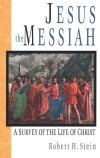
The time is ripe for a new account of the life of Jesus. It has been over twenty-five years since an evangelical New Testament scholar has written a textbook survey of this type. Today the landscape of Jesus and Gospel studies has been radically transformed by new questions and critical challenges. No less remarkable is the contemporary renaissance of our knowledge of the world of Jesus.
In Jesus the Messiah Robert Stein draws together the results of a career of research and writing on Jesus and the Gospels. Every episode in the life of Jesus is here treated with historical care and attention to its significance for understanding the life and ministry of Jesus. Clearly written, ably argued, and geared to the needs of students, Jesus the Messiah will give probing minds a sure grounding in the life and ministry of Jesus.
A sober yet powerful version of the life of Jesus, informed by a deep knowledge of contemporary critical biblical scholarship, but also profoundly shaped by the faith of the church. Stein shows a clear awareness of the importance of the philosophical assumptions that biblical scholars bring to their work, and he provides an unapologetic account of what can be known about the 'real Jesus' when one is willing to take seriously the possibility that God was really at work in the life of Christ. A work like this demonstrates that biblical scholarship can be 'critical' in the sense of being meticulous and responsible to the evidence without being anti-supernatural.
—C. Stephen Evans, Professor of Philosophy, Calvin College
In an era when we have one critic after another hailing a newly discovered revolutionary Jesus, pacifist Jesus, unknowable Jesus or various other Jesuses made after our own modern likenesses, it is refreshing to read a book that presents and explains the biblical Jesus. In Jesus the Messiah, not only does Stein give us the Jesus of Scripture and explain his ministry, he also interacts with a variety of critics concerning the details of his life. It is an instructive and useful work that puts a library full of information about Jesus compactly in one place.
—Darrell L. Bock, Research Professor of New Testament Studies, Dallas Theological Seminary
In an age of polemicists, Stein is an irenic and careful scholar. Here in this book we have the distillation of many years of work on the Synoptic Gospels and the life of Jesus. Eminently readable and with helpful bibliographies at the end of each chapter, this survey is both coherent and cogent, both sound and sensible. The educated layperson will find this a helpful and useful guide to what we can know about the historical Jesus.
—Ben Witherington III, Professor of New Testament, Asbury Theological Seminary
Combining in an admirable way attention to detail with clarity of writing, Stein's work is both a good read and suitable for a classroom text. It surveys the life of Christ with faithfulness to the Evangelists' accounts and with a good historical sense.
—E. Earle Ellis, Research Professor Emeritus of Theology, Southwestern Baptist Theological Seminary
In teaching a course that surveys both the teachings and the life of Jesus I found no book that did the job. Now I have found it. This book is an extraordinary effort. It is both comprehensive and clear. In addition, . . . this book does not get tangled in the suffocating web of criticism and debate about what happened and whether or not Jesus said this or that. Jesus the Messiah will become a standard for evangelicals for years to come.
—Scot McKnight, Karl A. Olsson Professor in Religious Studies, North Park College
Robert Stein is gifted with the ability to discuss difficult issues in a simple and attractive manner. His book on the life of Jesus assumes the reliability of the Gospels and the reality of the supernatural, and on this basis he discusses the story in adequate detail for the beginning student, with an admirable refusal to be dogmatic about historical questions where the evidence does not warrant it. This is a helpful modern restatement of a traditional approach by a scholar who has already put students in his debt with his more detailed books on the Synoptic problem and on the teaching of Jesus.
—I. Howard Marshall, Honorary Research Professor of New Testament, University of Aberdeen
Jesus the Messiah is the book for which I have been waiting. It will make a superb textbook for university and seminary students. All of the important issues are treated fairly and are laid out with clarity. What we have here is a sane alternative to the sensational and iconoclastic writings produced by members of the Jesus Seminar and others.
—Craig A. Evans, Payzant Professor of New Testament, Acadia Divinity College
Robert H. Stein is Senior Professor of New Testament Interpretation at The Southern Baptist Theological Seminary, Louisville, Kentucky.
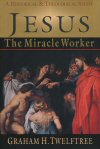
Few today doubt that Jesus was viewed by many of his contemporaries as a miracle worker. And many scholars today would agree that Jesus was a healer and an exorcist. But what does this mean? Was Jesus simply a master at relieving psychological distress, a healer of psychosomatic illness, a purveyor of paranormal therapy? What distinguished Jesus from other miracle workers of the ancient world? And what should we make then of his stilling the storm, his walking on the sea, his feeding of the five thousand?
In this study of the miracles of Jesus, Graham Twelftree extensively examines the miracles within each Gospel narrative. He evaluates Jesus' own understanding of the miracles, weighs the historical reliability of the miracle stories, and considers the question of miracles and the modern mind.
This book maps and explores the borderlands between the affirmations of faith and the conclusions of historical method. Are some miracles simply more open to historical verification than others? With the historical study of Jesus once again capturing the attention of the media and the public, this timely book courageously steps forward to investigate the hard questions.
Jesus the Miracle Worker is a comprehensive and textbook study of the miracles of Jesus, written by a recognized expert in the historical investigation of the exorcisms of Jesus.
Graham Twelftree's study makes a significant contribution to what has been called the third quest of the historical Jesus.
—Bruce D. Chilton, Bernard Iddings Bell Professor of Religion, Bard College
The combination of exegetical, historical, and theological perspectives in this single volume makes Jesus the Miracle Worker an especially remarkable work.
—John P. Meir, Professor, University of Notre Dame
A masterful study of an important aspect of the ministry of the historical Jesus . . . a significant contribution to the field.
—Craig A. Evans, Payzant Professor of New Testament, Acadia Divinity College
Twelftree . . . masterfully guides his readers through issues of theology and historicity, demonstrating the trustworthiness of most all of the major thrusts of the Gospel miracles (and not a few minor ones). . . . a very welcome and important addition to the 'third quest.'
—Craig L. Blomberg, Distinguished Professor of New Testament, Denver Seminary
It is a pleasure and enrichment to read his new work. . . . a very timely and well-conceived book.
—Colin Brown, Senior Professor of Systematic Theology, Fuller Theological Seminary
Richly documented and cogently argued, the book will offer a challenge to all recent bids to see Jesus as other than a wonderworking Messiah who announces by his signs the presence of the Kingdom.
—Ralph P. Martin, Distinguished Scholar in Residence, Fuller Theological Seminary
The work of an expert . . . who sees the problem of Jesus the Miracle Worker not only from an exegetical New Testament point of view but also in its relations to philosophical, theological, and scientific problems. . . . a valuable contribution to the better understanding of the Gospels.
—Martin Hengel, Professor Emeritus of New Testament and Early Judaism, University of Tubingen
This fine study of the miracle traditions in the Gospels faces squarely the awkward philosophical and historical questions.
—Graham N. Stanton, Lad Margaret's Professor Emeritus of Divinity, University of Cambridge
Graham H. Twelftree is Distinguished Professor of New Testament at Regent University in Virginia Beach, Virginia. He is the author of numerous books, including Christ Triumphant and Jesus the Exorcist.
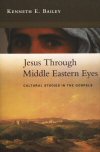
Beginning with Jesus' birth, Ken Bailey leads you on a kaleidoscopic study of Jesus throughout the four Gospels. Bailey examines the life and ministry of Jesus with attention to the Lord's Prayer, the Beatitudes, Jesus' relationship to women, and especially Jesus' parables.
Through it all, Bailey employs his trademark expertise as a master of Middle Eastern culture to lead you into a deeper understanding of the person and significance of Jesus within his own cultural context. With a sure but gentle hand, Bailey lifts away the obscuring layers of modern Western interpretation to reveal Jesus in the light of his actual historical and cultural setting.
This entirely new material from the pen of Ken Bailey is a must-have for any student of the New Testament. If you have benefited from Bailey's work over the years, this book will be a welcome and indispensable addition to your library. If you are unfamiliar with Bailey's work, this book will introduce you to a very old yet entirely new way of understanding Jesus.
While no book on Jesus and the Gospels can be perfect or final, writing any really good book on them places staggering demands on an interpreter. To name just seven: literary aptitude, linguistic competence, critical shrewdness, cultural sagacity, theological acumen, spiritual sensitivity, and hermeneutical sophistication. In this highly stimulating study Kenneth Bailey manages to reflect them all, and more besides, in part because he stands on the shoulders of Middle Eastern interpreters whom few in the West can even read. This book will sharpen historical understanding, improve much preaching and fuel new scholarship. It may shed as much new Licht vom Osten ('light from the ancient East') on Gospel passages as we have seen since Deissmann's book by that title a century ago. And in all of this, Bailey keeps the cross and the message of his sources at the center where they belong.
—Robert W. Yarbrough, Professor of New Testament, Trinity Evangelical Divinity School
I have long been an admirer of Kenneth Bailey's helpful insights. As in his earlier works, his breadth of knowledge of Middle Eastern culture sheds rich light on numerous points in the Gospels, providing fresh perspectives and often illumining details we have rarely considered. He provokes those of us who depend mostly on ancient written sources to consider new approaches, often cohering with but often supplementing such research.
—Craig S. Keener, Professor of New Testament, Palmer Theological Seminary
Bailey has a gift of clear, lively expression; he takes advantage of his personal experiences, interest in Hebrew poetic structure, and knowledge of Arabic to bring insights into New Testament interpretation.
—Journal for the Study of the New Testament
This book could serve as material for an adult or student Sunday school class. Laid out in simple format for easy absorption by readers, the author's explanations of his findings require no formal training to follow and understand them. Particularly helpful are the summaries provided at the conclusion of each chapter. This book may very well establish Bailey's legacy beyond dispute.
—Journal of the Evangelical Theological Society
Jesus through Middle Easter Eyes is Bailey's most recent 400 page call to western Christians who need to time travel to the Middle East. And in page after page, he identifies themes and reflexes assumed in the gospels that slip right past us.
—Evangelical Quarterly
A brilliant addition to Bailey's other works in which he sheds light on the biblical text from Middle Eastern culture.
—Bibliotheca Sacra
Kenneth E. Bailey is an author and lecturer in Middle Eastern New Testament studies. An ordained Presbyterian minister, he also serves as Canon Theologian of the Anglican Diocese of Pittsburgh. He holds graduate degrees in Arabic language and literature, and in systematic theology; his ThD is in New Testament. Bailey spent forty years living and teaching New Testament in Egypt, Lebanon, Jerusalem and Cyprus, still holding the title of Research Professor Emeritus of Middle Eastern New Testament studies at the Ecumenical Institute (Tantur), Jerusalem.
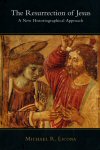
The question of the historicity of Jesus' resurrection has been repeatedly probed, investigated, and debated. And the results have varied widely. Perhaps some now regard this issue as the burned-over district of New Testament scholarship. Could there be any new and promising approach to this problem?
Yes, answers Michael Licona. And he convincingly points us to a significant deficiency in approaching this question: our historiographical orientation and practice. So he opens this study with an extensive consideration of historiography and the particular problem of investigating claims of miracles. This alone is a valuable contribution.
But then Licona carefully applies his principles and methods to the question of Jesus' resurrection. In addition to determining and working from the most reliable sources and bedrock historical evidence, Licona critically weighs other prominent hypotheses. His own argument is a challenging and closely argued case for the historicity of the resurrection of Jesus, the Christ. Any future approaches to dealing with this "prize puzzle" of New Testament study will need to be routed through The Resurrection of Jesus.
The resurrection of Jesus is—in many ways—too important a topic to be left to theologians! In this thoroughly researched and well-argued volume, Mike Licona brings the latest in discussion of historiography to bear on the question of Jesus' resurrection. In a discipline that is often overwhelmed by theological special-pleading, it is refreshing to have this sober and sensible approach to the resurrection that evaluates the historical data and the arguments of many of the scholars writing on the subject. There are few biblical scholars who will not learn something from this important book.
—Stanley E. Porter, President, McMaster Divinity College
This book is the most thorough treatment on the resurrection and historiography to date, useful also to those studying the intersections of philosophy of science, history, and theology. Drawing masterfully from a wide range of disciplines, Licona builds a coherent case showing that the best explanation for our evidence involves Jesus' historical resurrection. Licona's research also makes clear that the frequent skepticism about this claim in much of the academy reflects not serious historiographic consideration but the mere inheritance of outdated philosophic assumptions.
—Craig S. Keener, Professor of New Testament, Palmer Theological Seminary
Michael Licona's thorough study of beliefs in Jesus' resurrection is to be recommended, since it is informed of the social sciences, ancient data, . . . attends to the New Testament witnesses and engages most of the recent discussions. He rightly argues that the early Christians did not interpret Jesus' resurrection in a metaphorical or poetic sense to the exclusion of a literal event that had occurred to his corpse.
—James H. Charlesworth, George L. Collord Professor of New Testament Language and Literature, Princeton Theological Seminary
For any reader [Licona] will be a most thorough, thoughtful, and courteous companion on his book's long journey through its important and contested terrain.
—Church Times
Licona develops a surprisingly fresh and rigorous historiographical approach analyzing data and interpretations from the eighth century BC up to the third century AD.
—Evangelicals Now
Michael R. Licona is Research Professor of New Testament at Southern Evangelical Seminary and on staff at the North American Mission Board. He is the author of Paul Meets Muhammad and coauthor with Gary Habermas of the award-winning book The Case for the Resurrection of Jesus.
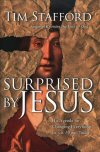
We all know who Jesus is—or think we do. We see children flock to him and gentle wisdom lovingly pour from him. We see the kindest man in the world. But these pictures are deceptively familiar. In the Gospels Jesus says and does many puzzling things—like shriveling a fig tree or telling followers to keep his miracles a secret. He is hard on his opponents, the Pharisees, but also makes extreme demands on his followers—like urging them to be as perfect as the Father in heaven.
Tim Stafford, informed by acclaimed New Testament scholars such as N. T. Wright, takes us behind such two-dimensional images by unearthing the specific historical and cultural situation of Jesus' day. What Jesus said about the kingdom of God, sin, Satan, prayer, the temple, Israel, and the people of God were all profoundly affected by his being a Jew in a land dominated by the ancient Roman. In fact, through his message and actions he meant to change things far more profoundly in his day and ours than we can ever imagine.
Why am I surprised to be, well, surprised, at Surprised by Jesus? My immediate response is how livable the life of Jesus is for us—livable in secularized North America and in our much-maligned church. Tim Stafford has given us Jesus without clichés, without moralisms, without polemic. . . . Jesus not only as he was, but as he is.
—Eugene H. Peterson, Professor Emeritus of Spiritual Theology, Regent College
An open reading of the Gospels reveals what has always been true: Jesus is awkward to deal with. Jesus is compelling but not comfortable. Jesus is familiar but not pegged. Jesus is compassionate but not sentimental. Jesus is Jewish but not exclusive. Jesus is provocative but not reductionist. These and many other extremely important things shine out through Tim Stafford's Suprised by Jesus. By all means, read it—but watch out!
—Mark Labberton, Senior Pastor, First Presbyterian Church of Berkeley
When I pray, 'Thy kingdom come. Thy will be done on earth as it is in heaven.' I am asking God to do, well . . . what Tim so powerfully describes in Surprised by Jesus. . . . No doubt about it, the kingdoms of this world will become the kingdoms of our Lord—and the book . . . shows you how to be a part of God's strategy to make it happen!
—Joni Eareckson Tada, Joni and Friends
With the grace of an experienced and kindly guide, Tim Stafford helps us scale some of the high peaks and rare air of the Gospels. By making accessible and relevant some of the most important scholarship on Jesus today, Stafford allows all of us—even pastors, professors, and layleaders—to be genuinely 'surprised' and challenged by Jesus anew. The chapter on preaching alone should be required reading before any attempts to teach from the Gospels today.
—Tod Bolsinger, Senior Pastor, San Clemente Presbyterian Church
In an age when much of Christian truth is obscured from view in the church because of its accommodation to the prevailing culture, we need prophetic voices that direct us back to the message of the Bible. Tim Stafford meets this need as he brilliantly exposes the implications of Jesus' life and teaching to us today. . . . The book is written in such an understandable style that it would be an excellent resource to give to an inquirer wanting to know who Jesus really was.
—Ajith Fernando, National Director, Youth for Christ, Sri Lanka
Each decade deserves a fresh look at Jesus, and Tim Stafford has presented us with this one's—one answering questions of current thought, yet remaining consistent with historic truth. . . . I believe you'll be surprised by the lift of the book's style, by the lift it brings to your own soul and, most significantly, by the life that breathes through your mind's exposure to the reality of Jesus' person, power, and purpose.
—Jack W. Hayford, Founding Pastor, The Church on The Way
Tim Stafford is a senior writer for Christianity Today. Among his many books are Knowing the Face of God, As Our Years Increase, The Student Bible (with Philip Yancey), Love, Sex, and the Whole Person, and Never Mind the Joneses.
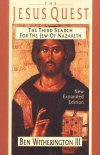
In The Jesus Quest, Ben Witherington offers the first comprehensive determination and assessment of what scholars are really saying about Jesus. In addition to the controversial views of John Dominic Crossan, Marcus Borg and Burton Mack, he presents and interacts with the work of important scholars such as Geza Vermes, E. P. Sanders, Gerd Theissen, Richard Horsley, John P. Meier, N. T. Wright and Elisabeth Schüssler Fiorenza. Witherington also outlines his own understanding of Jesus as sage. Here is an indispensable survey and assessment of the most significant religious scholarly debate of the 1990s from the pen of a Third Quest participant. It was voted one of Christianity Today's 1996 Books of the Year.
In recent years Jesus' time, place, and social setting have received renewed scholarly attention. New research on the Dead Sea Scrolls and other Jewish and Hellenistic texts has resulted in a surge of new images of Jesus and new ideas about his ministry. Dubbed the Third Quest for the historical Jesus, this recent effort is a transformation of the first quest, memorialized and chronicled by Albert Schweitzer, and the second quest, carried out in the 1950s and 1960s in the wake of extreme Bultmannian skepticism.
The controversial works of John Dominic Crossan, Marcus Borg and Burton Mack, and the results of the Jesus Seminar have been thrust upon the public by publicists and media as the voices of learned consensus. Meanwhile, at the center of the scholarly investigation of Jesus, a less celebrated but certainly no less informed majority rejects many of the methods and conclusions of those who have captured the limelight.
With its critical discussion of each significant contributor’s major and minor works, alternative approach to understanding Jesus in historical context and lengthy postscript, this widely praised volume updates you on the continuing saga of the Third Quest for the historical Jesus.
The best review and critique of recent life of Jesus writing currently available. Students and others who are bewildered by the recent cacophony of late-twentieth-century portrayals of Jesus will find it a valuable introduction and aid.
—James D. G. Dunn, Lightfoot Professor of Divinity Emeritus, University of Durham
Prof. Ben Witherington is already well known for his work in Jesus research. But in The Jesus Quest he attempts something new and solely needed: a detailed critical review of the flood of literature on the so-called Third Quest for the historical Jesus . . . The Jesus Quest is a welcome guide for all who want to follow the twisting, turning road of Jesus research today.
—John P. Meier, Professor of New Testament, University of Notre Dame
The closest we have to the part played almost 100 years ago by Albert Schweitzer's classic The Quest for the Historical Jesus . . . a worthy guide through the intricate research maze now known as the third quest for the historical Jesus.
—Themelios
Witherington’s The Jesus Quest offers readers a lucid and insightful description of the current search for the historical Jesus . . . This important book cuts a path through a dense and tangled forest of conflicting scholarly methods and conclusions. Witherington succeeds in identifying the significant gains in current research and criticizes proposals that are off-target. I recommend this book highly.
—Craig A. Evans, Payzant Professor of New Testament, Acadia Divinity College
This book is a much-needed guided tour to the recent spate of books on the historical Jesus. Those who are lost in the maze of competitive claims of scholarship, with its disturbingly different pictures of Jesus, will find Witherington a sympathetic, involved, and trustworthy guide.
— Marion L. Soards, Professor of New Testament Studies, Louisville Presbyterian Theological Seminary
If I could use only one book for my Historical Jesus course, a book that would appropriately survey all the major current options yet also synthesize the best of those options, it would be Witherington’s The Jesus Quest. Such a work has long been needed, and among scholars disposed to accept the reliability of a large part of the Jesus tradition, I know of none better than Ben Witherington to accomplish this task.
—Craig S. Keener, Professor of New Testament, Palmer Theological Seminary
This perceptive and comprehensive survey of recent writing on ‘the historical Jesus’ is very useful indeed. Witherington’s careful evaluations should help to dispel the confusion created by media publicity as to where the majority of scholars stand on the relation of Jesus to the Gospel portraits of him.
—Raymond E. Brown, Professor Emeritus, Union Theological Seminary
The Jesus Quest is an outstanding book, one that is highly suitable for textbook use at the undergraduate or graduate level. Further, because it is very well written and not overly technical or academic in style, this book is sure to have a broad appeal. The Jesus Quest is worthy of a hearty recommendation.
—Journal of the Evangelical Theological Society
Ben Witherington III is Amos Professor for Doctoral Studies, Asbury Theological Seminary, Wilmore, KY, and is on the doctoral faculty at St. Andrews University, Scotland.
Reviews
5 ratings

Ralph A. Abernethy III
9/7/2017

John L. Jefferson
9/10/2014

David Leslie Bond
11/20/2013

Shane Wright
10/8/2013
Tin
8/13/2013